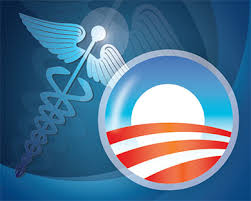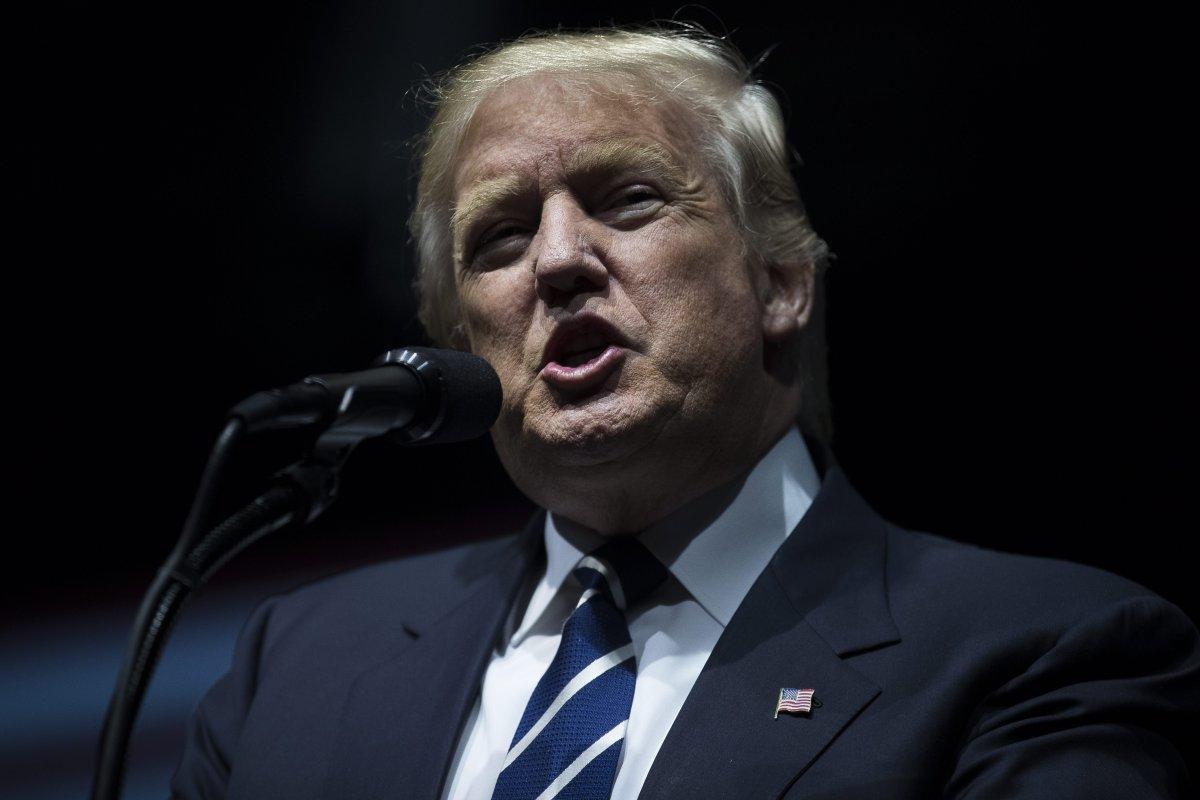You know about Donald Trump’s claims of millions of illegal votes costing him the popular vote. You’ve heard him insist those were record crowds at his inaugural. And you may be aware of the embarrassing speech at CIA that he called a home run. Since then, a blizzard of actions by Trump and his administration has already displaced those events in the headlines, but before they vanish, we think we should delve into these episodes because they exhibit such abnormal behavior that they arouse the fear that America has elected as its president someone with acute mental disabilities.
Vote eerily and vote often
Winning the presidency by the Electoral College was not enough. For Trump, obsessed with winning, Hillary Clinton having taken the brass ring of the popular vote was infuriating. The world is aware of this tweet of November 27:

Three million is the number Trump then adopted, a number that would wipe out Hillary Clinton’s 2.8 million popular vote lead. At times the number became five million. Three days after his inauguration he would actually say to congressional leaders, “Between 3 million and 5 million illegal votes caused me to lose the popular vote”. Five days after, he vowed in a pair of tweets there would be an investigation.
In his birther campaign against Obama, Mr. Trump told Meredith Viera, host of a morning television show, that he had investigators in Hawaii, “people that have been actually studying” putative birth records “and they cannot believe what they’re finding”. Nothing further was ever heard, of course; the technique was to sow doubt in gullible minds.
The same pattern has immediately recurred in the illegal voter fantasy. A “conservative activist” named Gregg Phillips, who has a website named VoteStand, told CNN’s Chris Cuomo one morning that he has the proof of the millions of illegal votes. He has proof but would not provide it. When will you?, asked Cuomo. “As soon as we get done with the checks. We’re going back in and checking. We know the numbers are right. We’re going back in and checking”. Cuomo sent that packing with, “Either you know or you don’t”.
Trump tweeted Phillips:

The “investigation” may belong to Gregg Phillips. Neither Congress nor FBI will go near this fantasy that Trump created to tell to himself, and he has shown that he doesn’t let go of anything. So we can probably expect him to announce “proof” at some point. The basis can only be what Trump has already fastened on: people registered to vote in more than one state, and deceased people still on the voter rolls.
It seems absurd to have to explain that away, but that’s his premise. People can remain on a state’s voter list when they move if there is no local procedure that connects a town’s property records with voter rolls. It’s not a problem because how many people would travel to their second state just to vote, possibly to a far distant state. Similarly, town election boards may not learn of deaths. But who are these individuals, and how many are there, that dig into those death records to find someone to impersonate, and do so at risk of a $10,000 fine and 5 years in jail? Trump is claiming millions of us are doing exactly that. Beyond consideration of what each of these millions of people would have to do is the question of who or what secretly organized this massive corruption? Who recruited these millions? As Republican operative Michael Steele said, “That is a level of coordination that is beyond anything ever done in this country”.
If he does persevere with his investigation, it cannot come up with proof of actual voting, so it will have no more than counts of people registered in two states or numbers of deceased in this or that locale. He’ll claim the potential of “massive voter fraud” awaits. “We must do better”, he tweeted. “Depending on results we will strengthen up voting procedures!”.
Some therefore argue that Trump is making his extravagant claim simply to lay the groundwork for Republican-controlled state legislatures to enact even stricter laws to prevent voting by black, Latinos and students. And surely come 2018 we can expect to hear the conservative wing reciting “registered in two states and deceased still on the rolls” as justification for new laws without any reference to people actually voting fraudulently.
But that is not what’s driving Donald Trump. Listen to what he said to David Muir of ABC News in an interview at the White House five days after the inauguration when he laid bare what seemed to be demons raging in his mind:
Muir: “Do you think that talking about millions of illegal votes is dangerous to this country without presenting the evidence?”
Trump: “No, not at all. Not at all. Because many people feel the same way that I do and…”
Muir: “You don’t think it undermines your credibility?”
Trump: “No, not at all because they didn’t come to me. Believe me, those were Hillary votes. And if you look at it, they all voted for Hillary. They all voted for Hillary. They didn’t vote for me.”
All three to five million. Not one for Trump.
Delusions and the Madness of Crowds
A famous book, “Extraordinary Popular Delusions and the Madness of Crowds”, came to mind when the newly minted President Trump went to lengths to create for himself the delusion of record-breaking crowds at his inauguration and argued that the media showing dispositive photos to the contrary was madness.
“This was the largest audience ever to witness an inauguration, period, both in person and around the globe”. That was White House Press Secretary Sean Spicer trying to straighten out the media the day after. That is what led Trump adviser Kellyanne Conway, that Sunday on “Meet the Press”, to utter the language’s new trope, “alternative facts”, as explanation of what Spicer had provided. But they were just running errands at the insistence of Trump, trying somehow to paint over the boss’s erratic and disturbing behavior:
“They say I had the biggest crowd in the history of inaugural speeches. … We had the biggest audience in the history of inaugural speeches.”
— Jan. 21, remarks at the CIA
“Wow, television ratings just out: 31 million people watched the Inauguration, 11 million more than the very good ratings from 4 years ago!”
— Jan. 22, tweet
“I looked out, the field was — it looked like a million, million and a half people. … The rest of the 20-block area, all the way back to the Washington Monument, was packed.”— Jan. 25, interview with ABC News
Aerial photography doesn’t lie. A million and a half? There was nothing of the sort. The crowd reached to nowhere near the Washington Monument. That Trump’s approval ratings were, at 37% according to Quinnipiac, the lowest since ratings began, whereas Obama’s approval was at 78% when he took the oath in 2099 — that made plain that Trump’s attendance would be far lower, as much as 80% lower said media reports. One could simply see where on the Mall the crowd petered out.
A reporter for The Nation who said he spent the whole day on the Mall despite the drizzle, wrote:
” I saw the empty stands that were supposed to be filled with throngs of Trump supporters…the surprisingly sparse smatterings of red baseball caps as well as my conversations with local souvenir salespeople who were overloaded with ‘Make America Great Again’ merchandise that wasn’t moving. It was obvious. The people just weren’t there.”
The Washington Post reported that on the morning after he was sworn in, Trump pressured the director of the National Park Service to locate more photos of the crowd. They were already framed and on the walls of the White House by that ABC interview five days after the inauguration. On the way out, Trump showed them to the ABC crew. His mania to change the facts and create a bigger crowd was on full display:
Trump: “Here’s a picture of the crowds. Now the audience was the biggest ever, but this crowd was massive. Look how far back it goes.”
Voice Over: “Just before we leave the President tells us he wants to show us just one more image.”
Trump: “One thing this shows is how far they go over here. Look how far this is. This goes all the way down here, all the way down.”
the dicey dossier
Donald Trump has dumbfounded Americans with his courtship of Vladimir Putin and worrisome and repeated rejection of the 17 intelligence agencies’ conclusion that it was Russia that had hacked Democratic computers. When CNN revealed the existence of a suspect Russian dossier on Trump containing bizarre conduct by prostitutes and BuzzFeed released the full 35 pages (Trump has now sued them), the President blamed the intelligence community for leaking the dossier, even though the material had been floating about Washington for weeks and could have been given to the press by a multitude. That lead to this splenetic accusation:

So when he finally agreed with their assessment that Russia was the perpetrator of the hacks and went to CIA headquarters the first day after his inauguration to make amends, he could hardly have expected a cordial reception. Yet his appraisal of his appearance there would prove glaringly otherworldly.
He talked while standing before their Memorial Wall, where only stars are shown to represent those who have lost their lives in the service of their country — 117 of them — because the identity of many cannot be revealed. One CIA veteran called the wall “emotional ground zero for the people at the agency”. One-third of the stars on that wall are for CIA lives lost after 9/11. Here’s a link to his talk. It pays to give it a quick read. Excerpts:
“But I want to say that there is nobody that feels stronger about the intelligence community and the CIA than Donald Trump. There’s nobody. And we really appreciate what you’ve done in terms of showing us something very special. And your whole group, these are really special, amazing people. Very, very few people could do the job you people do. And I want to just let you know, I am so behind you. And I know maybe sometimes you haven’t gotten the backing that you’ve wanted, and you’re going to get so much backing. Maybe you’re going to say, please don’t give us so much backing. (Laughter.) Mr. President, please, we don’t need that much backing. (Laughter.) “
That’s the extent his talk would be about the CIA; right off, it had become more about him. He now branched into the “tremendous percentage” of votes the military had given him, how together they would defeat ISIS as if it would be the agency’s mission and with no other mission mentioned, the “good” guys and “fantastic” guys he had chosen for his cabinet and for them. In Mike Pompeo for CIA director, “you will be getting a total star”.
You’re going to be getting a total gem. He’s a gem. (Applause.) You’ll see. You’ll see. And many of you know him anyway. But you’re going to see. And again, we have some great people going in. But this one is something — is going to be very special, because this is one, if I had to name the most important, this would certainly be perhaps — you know, in certain ways, you could say my most important. You do the job like everybody in this room is capable of doing. And the generals are wonderful, and the fighting is wonderful. But if you give them the right direction, boy, does the fighting become easier. And, boy, do we lose so fewer lives, and win so quickly. And that’s what we have to do. We have to start winning again.
That’s a sampling of the incoherence typical of the whole speech, which then wandered off to subjects far afield from the CIA. We heard about the importance of academics, an uncle who was an MIT professor — “an academic genius — and then they say, is Donald Trump an intellectual? Trust me, I’m like a smart persona”. We heard about how young he feels, how many campaign stops he made per day “in front of 25,000, 30,000 people, 15,000, 19,000”, how America had stopped winning, how if we’d kept Iraq’s oil there would be no ISIS, his running war with the media who “are among the most dishonest human beings on Earth” (laughter and applause)… “because I love honesty”. And then his inaugural address:
Did everybody like the speech? (Applause.) I’ve been given good reviews. But we had a massive field of people. You saw them. Packed. I get up this morning, I turn on one of the networks, and they show an empty field. I say, wait a minute, I made a speech. I looked out, the field was — it looked like a million, million and a half people. They showed a field where there were practically nobody standing there. And they said, Donald Trump did not draw well. I said, it was almost raining, the rain should have scared them away, but God looked down and he said, we’re not going to let it rain on your speech. In fact, when I first started, I said, oh, no. The first line, I got hit by a couple of drops. And I said, oh, this is too bad, but we’ll go right through it. But the truth is that it stopped immediately. It was amazing. And then it became really sunny. And then I walked off and it poured right after I left. It poured.
Then on to Churchill — “He doesn’t come from our country, but had a lot to do with it, helped us, real ally” — how he thinks he holds the record for how many times he has been on the cover of Time magazine, way more than Tom Brady…and so on.
If you are wondering how agency people could applaud Trump after what he had said about them, a CBS News report said that he had brought along his own cheering section and placed them in the front rows. The CIA people were sullen. He was talking to a key intelligence agency that will be essential for him to discover whatever is discernible in a secret and dangerous world, yet almost none of his talk was about the serious work of CIA. Ask yourself, if you were to give a talk before the CIA, is this what you would have talked about?
And now we get to what is most troubling — his need to believe that everything he does is “fantastic”, his inability to know that he had just delivered the rambling mess of a disorderly mind. Muir of ABC asked the President about his CIA speech:
“That speech was a home run. That speech, if you look at Fox…see what Fox said, it was one of the great speeches [emphasis added]. They showed the people applauding and screaming. People loved it, they loved it. They gave me a standing ovation for a long period of time. They never even sat down, most of them during the speech. There was love in the room.”
According to a transcript on ABC’s website that went beyond what was aired, Trump had added, “In fact, they said it was the biggest standing ovation since Peyton Manning had won the Super Bowl and they said it was equal”. Applause in the CIA lobby equal to the applause of a stadium of people, that is. As for the standing ovation, he had failed to invite the audience to take their seats, so they remained standing the whole time.
Is he alright? You decide.
Feb 15 2017 | Posted in
Policy |
Read More »







